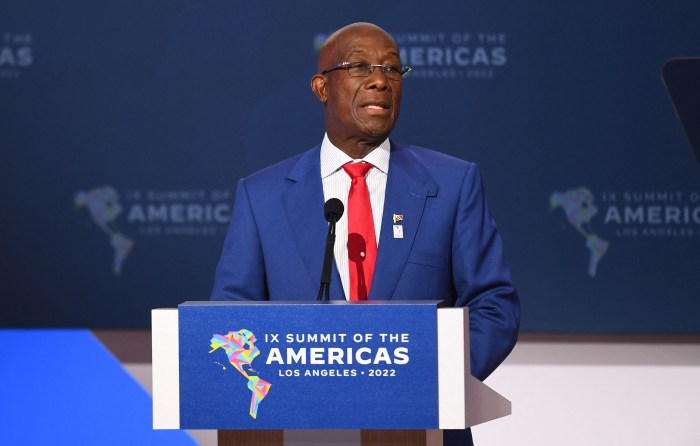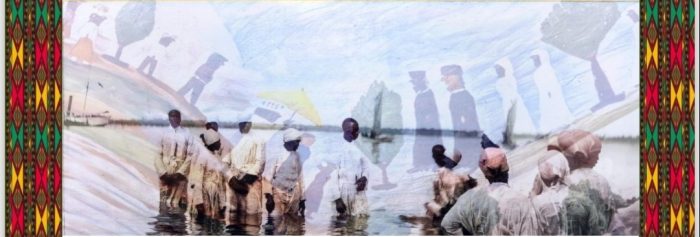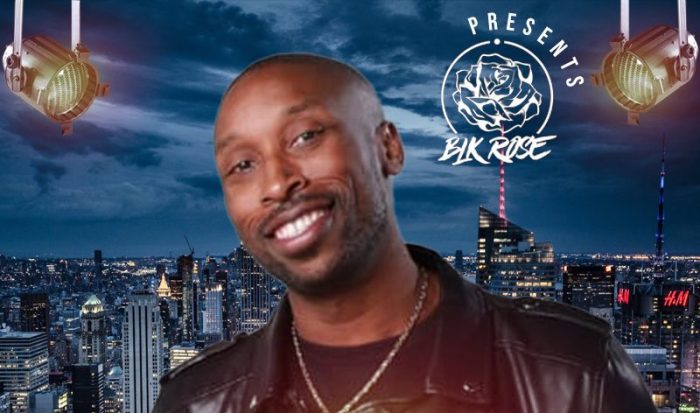Eighty years after a segment of Jamaica’s African population mobilized to peacefully protest colonial oppression and distinguish themselves separately as Rastafarians, allegedly, the lifestyle is gaining traction and may have recruited many more followers in the 21st century.
According to the Associated Press, “more people are joining Jamaica’s homegrown Rastafarian religion…”
A report in the Jamaica Observer agreed with this position stating that “The Rastafarian faith is indeed rising in Jamaica, where new census figures show a roughly 20 per cent increase in the number of adherents over a decade, to more than 29,000.”
That figure was disputed by Jalani Niaah, a lecturer at the University of the West Indies and expert in the Rastafari movement.
Niaah reportedly stated that the true figure may be closer to eight to 10 per cent and represents “a tiny sliver of the mostly Christian country’s 2.7 million people, population.”
He attributed the disparity to the fact “many Rastafarians disdain nearly all government initiatives and not all would have spoken to census takers.”
While both media entities focused on the Bobo Ashanti commune in Bull Bay, Jamaica — who differ from other Rasta sects in the belief that their founder, King Emmanuel Charles Edwards was the Black incarnation of Jesus Christ — Rastafarians living off the island claim the opposite and contend the report does not fully represent the various communities that comprise the total Rastafarian sect.
Here in New York, Rastafarian advocate Paul “Jah Paul” Haughton agrees that in some areas of Jamaica there are some progressive movements.
He told Caribbean Life that “in New York, Rastas are stagnant.”
“There is no progressive move,” the avowed ‘Honorebel Rastaman” asserted.
“It has become a party thing…there is nothing concrete…it’s all about reggae… very commercial.”
Haughton said on significant dates such as — Ethiopian Christmas, the birthday anniversary of Marcus Garvey, anniversary of the coronation of Emperor Haile Selassie I — there is hardly ever any commemoration.
“People just grabbing at red, gold and green and reggae,” Haughton said.
“And the church and state doing better because at least they have places to meet and reason.”
Back on the island, the belief is that “its contemporary appeal is particularly fascinating to young men, especially in the absence of alternative sources for their development.”
The Rasta movement’s growing appeal there is attributable to its rejection of Western materialism, the scarcity of opportunities for young men in Jamaica and an increasing acceptance of it.
“For the Black Nationalist Bobo Ashanti commune, the Rastafarian faith is a transforming way of life, where Rastas strive to live a frugal existence uncomplicated by binding relationships to “Babylon” — the unflattering term for the Western world,” Niaah added.
They share a deep alienation from modern life and Jamaica is perceived as a temporary harbor until prophecy is fulfilled and they journey to the promised land of Africa on big ships. Life is highly regimented at the isolated retreat which is cut off from most of the comforts of modern society.”
The local Jamaican newspaper reported ‘Other Rastafarians follow a more secular lifestyle, marked by a passion for social justice, the natural world, reggae music, and the ritualistic use of marijuana to bring them closer to the divine. A melding of Old Testament teachings and Pan-Africanism, Rastafarianism emerged in colonial-era Jamaica in the 1930s out of anger over the oppression of Blacks. Its message was spread by the reggae songs created by musical icons Bob Marley, Peter Tosh, Burning Spear and others in the 1970s. Since that era the movement has attracted a following among reggae-loving Americans, Europeans and Asians.’
Pablo Assab, a social worker who resides in London, England told Caribbean Life that the cultural movement is neither rising nor declining.
“Rastafari came to prominence based on the music of the great artists that sang the message back in the days. That music is barely heard anywhere here in London anymore.”
“The only remnants I see of Rasta here in London are the elders of the faith I happen to meet in the streets,” he added, “Rasta definitely not chic in London, today.”
From Addis Ababa, Ethiopia, Dr. Desta Meghoo told Caribbean Life — I think the definition of Ras Tafari has changed and so I would first ask to look at what or who is Ras Tafari.
The repatriated Rastafarian said: “I would say elements of the movement have become very popular, mostly through the music, and as ones seek an alternative life style that embraces vegetarianism, environmental awareness and in a context which is free…aka no preacher to account to…the movement has become attractive to many Blacks and others.”
The educator, lawyer and mother also noted “Sadly the original discourse and motivation of the Pan African movement known as Ras Tafari has not paid much attention to the plight of Black people…which was the original intent. Instead we now have millions worldwide who cling to almost an illusion of the faith and the ‘One Love’ theory without wanting or even feeling the need to address racism. One can only say spirituality is free and personal but for old school activists like myself and many others who are observing the decline of the root and rise of a possible strange fruit…live and let live.” “The elders and ones like myself feel as if we need to be more assertive internally to ensure the movement begins to move forward,” Dr. Meghoo said.
Some authorities contend that at least one million people practice Rastafarian ethics worldwide.
In the United States, the population of Rastafarians appears to be steadily growing due in part to jailhouse conversions, Charles Price, associate professor of anthropology at the University of North Carolina at Chapel Hill and the author of “Becoming Rasta: Origins of Rastafari Identity in Jamaica” explained.
“I regularly get letters from inmates seeking information,” Price added. “I also get regular invitations to talk to prisoners at local North Carolina juvenile facilities, often from chaplains trying to figure out what to do.”
Besides the well known ritual use of marijuana, Rastas endeavor to reject materialist values and practice a strict oneness with nature, eating only unprocessed foods and leaving their hair to grow, uncombed, into dreadlocks.
Most of its many sects worship the late Ethiopian Emperor Haile Selassie I.
The worship of the Ethiopian is rooted in Jamaican national hero and Black nationalist leader Marcus Mosiah Garvey’s 1920’s prediction that a “Black king shall be crowned” in Africa, ushering in a “day of deliverance.”
When an Ethiopian prince titled Ras Tafari became emperor in 1930, the descendants of slaves in Jamaica took it as proof that Garvey’s prophecy was being fulfilled. When Selassie came to Jamaica in 1966, he was mobbed by cheering crowds, and many Rastafarians insisted miracles and other mystical happenings occurred during his visit. Adherents were long treated as second-class citizens in Jamaica and other Caribbean islands, looked down on for their dreadlocks and use of marijuana.
But discrimination never stopped businessmen from cashing in on the faith, whose red, green and gold clothing and accessories earn millions in sales of T-shirts, crocheted caps and other items. Marley’s music and the faith’s marijuana-laced mysticism has also been used to promote Jamaica as a tourist destination
Although discrimination against Rastafarians has declined considerably in recent years in Jamaica, it is still rare to see anyone who wears dreadlocks working in banks, in the police force or any corporate professions.
The first dreadlocked politician in Jamaica’s Parliament was elected last year.
Many Rastafarians advocate reparations for slavery and a return to Africa.
“There is a whole part of the society that would still consider Rastafari to be delusional, and this is largely hinged on the claims made about Emperor Haile Selassie and also the consumption of (marijuana) and the idea of repatriation,” Niaah added.
Sister Carol, a veteran of reggae and Rastafarian maintains optimism.
She attributes the steady growth Of Rastafarianism in Jamaica to “the influence of Muta who regularly educates people.”
Mutabaruka, a poet, and personality who host “Cutting Edge” a weekly, cultural, radio program aired on IRIE FM, an all-reggae station often extols a global perspective on the culture.
She also claims that an upsurge from a youth movement is responsible for “the global rise” in Rastafarianism. She told Caribbean life that more people are seeking truth; a better way of living, good eating practices, spiritual awareness and self-sufficiency.


























